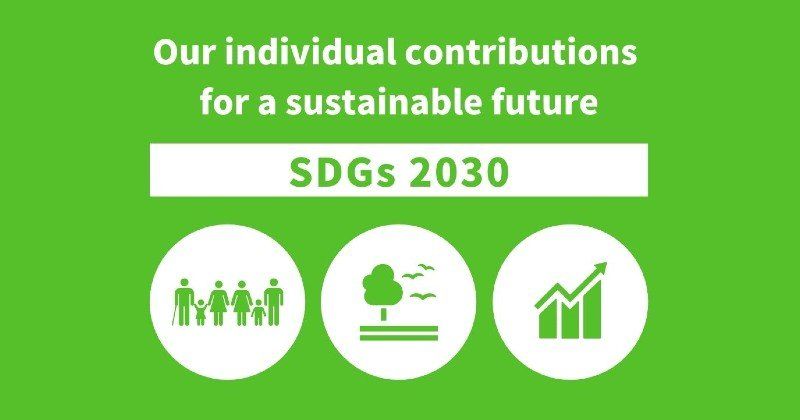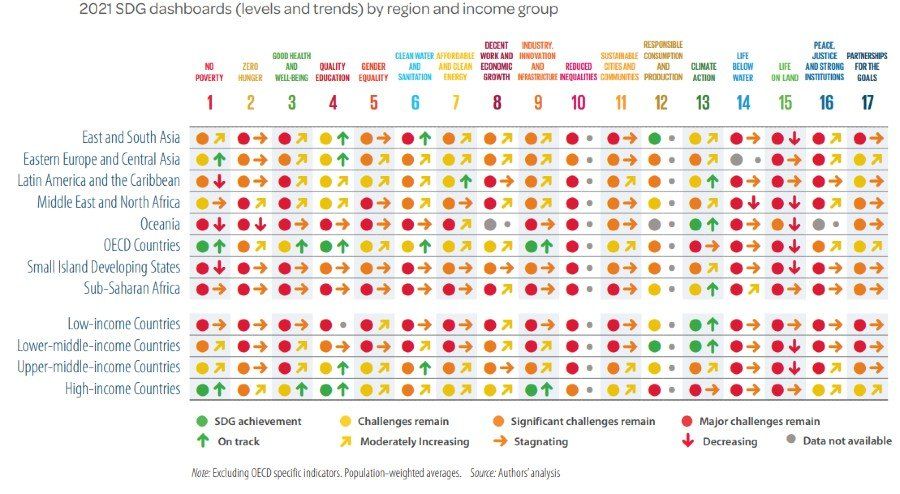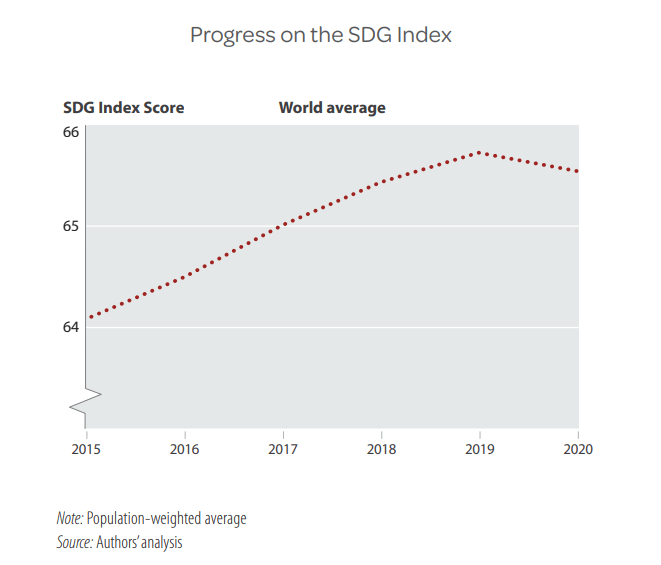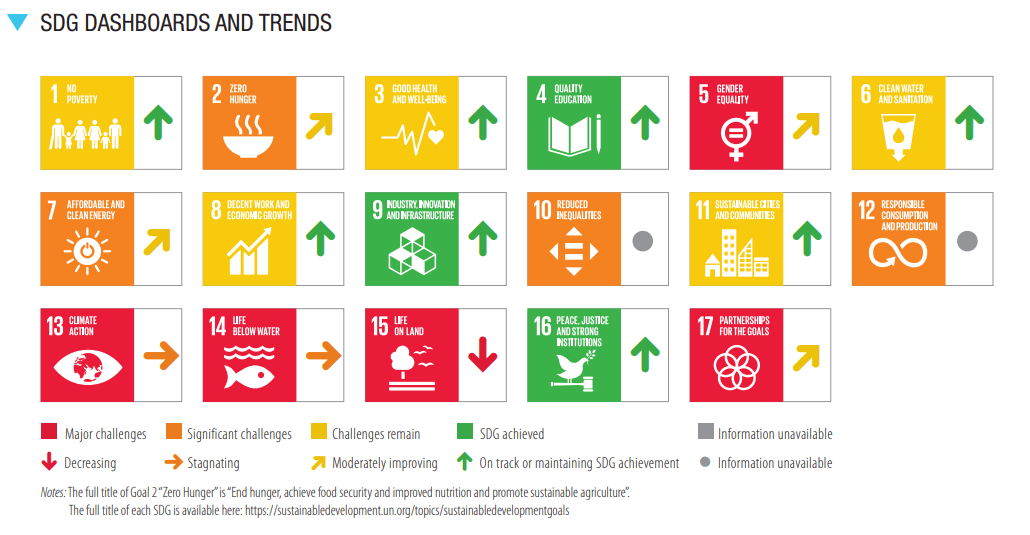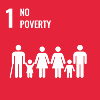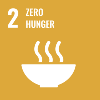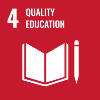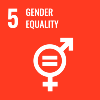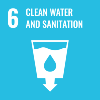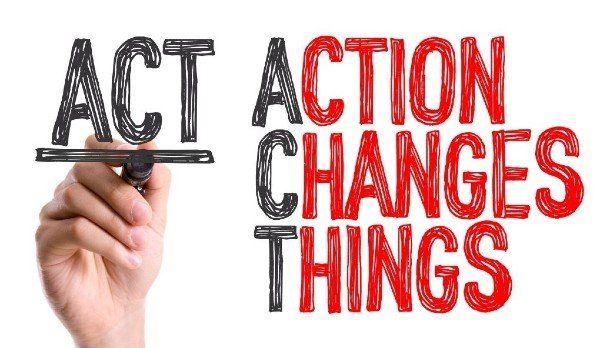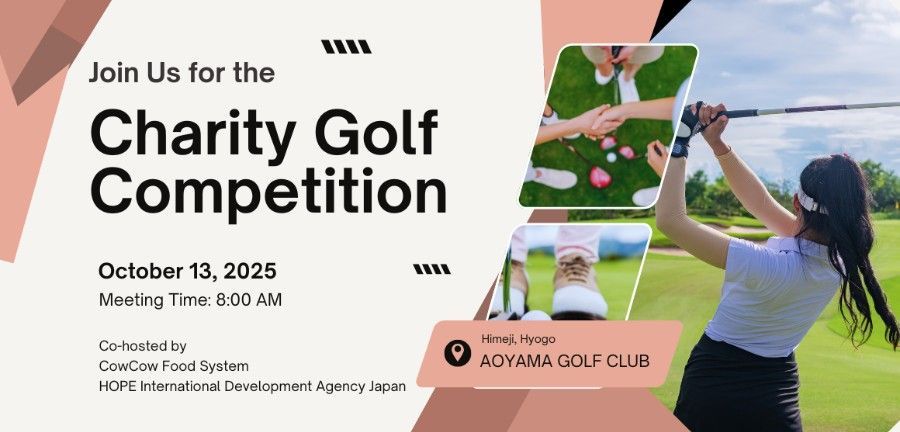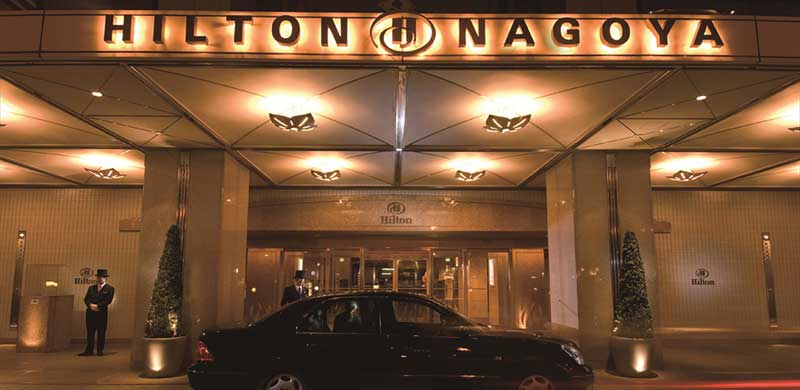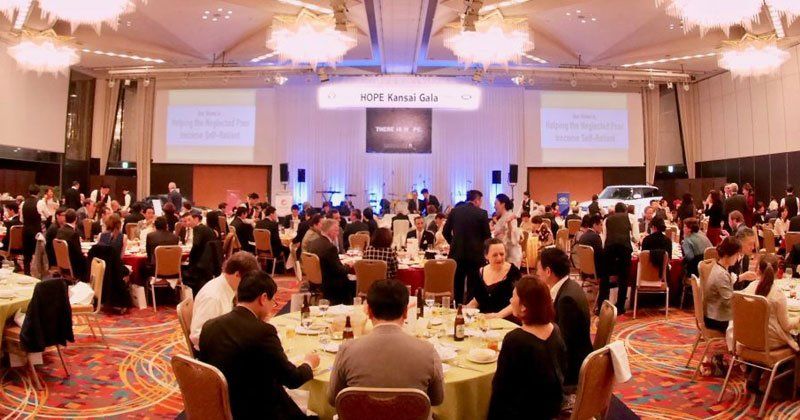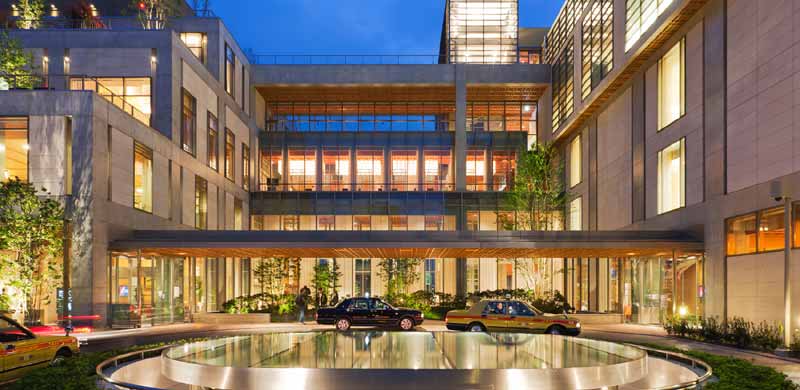Our individual contributions for a sustainable future
What are SDGs?
Today, we are facing many challenges, such as poverty, conflicts, and climate change.
The Sustainable Development Goals are the shared goals of the international community set by the United Nations which aims to solve these issues to protect the earth and enable a sustainable future for all by 2030.
The SDGs comprise 17 goals that address various issues such as human rights, the economy, and the environment. Solving complex interconnected problems and achieving the SDGs requires a comprehensive approach to multiple goals, rather than working towards just one goal.
The current state of SDG initiatives around the world and in Japan
According to a report published by the Sustainable Development Solutions Network (SDSN) in June of this year, there are very few goals that have been achieved so far (●, ↑ marked in green in Diagram 1), with a conspicuously large number of goals yet to be achieved (marked in yellow, orange, red, in Diagram 1).
The report even included the following statement: "For the first time since the SDGs were adopted in 2015, the world lost ground on the SDGs in 2020. The Covid-19 pandemic has created not only a global health emergency but also a sustainable development crisis." (Diagram 2).
On the other hand, how are we doing on the SDGs in Japan?
According to the report, Japan ranks 18th out of 165 countries in its achievement of the SDGs, down from 11th in 2017 for the fourth consecutive year.
There are multiple issues concerning each goal, but the ones that have been achieved so far are:
- Goal #4 "Ensure inclusive and equitable quality education and promote lifelong learning opportunities for all",
- Goal #9 "Build resilient infrastructure, promote inclusive and sustainable industrialization, and foster innovation",
- Goal #16 "Promote peaceful and inclusive societies for sustainable development, provide access to justice for all and build effective, accountable and inclusive institutions at all levels",
as shown in Diagram 3.
And as in other countries, work on the remaining goals is expected to be stepped up.
In recent years, businesses and corporations have also begun contributing to the SDGs in their respective areas of expertise. Initiatives that contribute to SDGs abroad as well as within Japan are now common.
HOPE Staff SDGs contributions
HOPE is working to achieve the following SDGs.
Our staff are also aware of how the SDGs are personally relevant in our lives and are not only working to achieve the goals related to HOPE’s work, but also doing what they can on a personal level.
Below are a few examples.
I donate old books to organizations that provide educational support to the poor in developing countries. The secondhand bookstore buys old books, and the money is donated to appropriate organizations (NGOs).
I favor local production for local consumption, which is good for the environment and promotes the creation of sustainable local communities.
I try not to use the words "because he’s a boy" and "because she’s a girl" when discussing children. I let children choose their favorite colors and clothes they want to wear so that they do not have fixed concepts such as "pink is for girls".
I convey to the people around me about the importance of water on my visits to the project.
When I visit developing countries, I cut my hair short to save water when I wash my hair.
I try not to use plastic bags at the project sites.
How can you contribute to the SDGs?
If you are interested in contributing to the SDGs, have a look at The Lazy Person’s Guide to Saving the World published by the United Nations. You’ll find many suggestions here that you can take up to make an impact.
We need to act!
At first glance, the SDGs are grand goals and may seem irrelevant to us. But even the small individual contributions that we make can contribute to the attainment of the SDGs if many of us act.
Start with what you are interested in and what you can do.
The world will surely change as each person becomes aware of the SDGs and acts!

